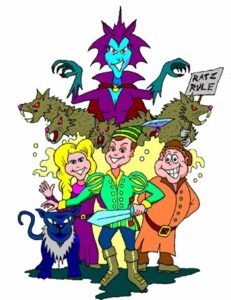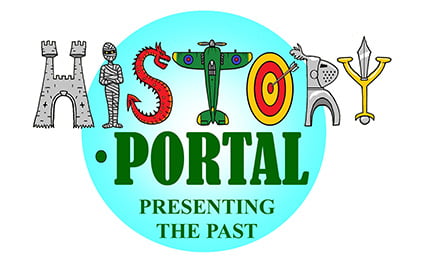 Well, there was a Richard Whittington and he did become Lord Mayor of London, that is true his name is on the list of City of London Mayors.
Well, there was a Richard Whittington and he did become Lord Mayor of London, that is true his name is on the list of City of London Mayors.
From there Pantomime takes over from reality, it tells that he came from a poor family in the country:
- picked up a cat on the way to London,
- got a job as a servant for Alderman Fitzwarren, then ran away,
- he rested on Highgate Hill where he heard Bow Bell ring out to him, telling him he would be three times Lord Mayor of London.
- He went back, and was sent on a trip on Fitzwarren’s boat,
- where he met a Sultan in a rat infested country,
- his cat ate the rats, the sultan was so pleased he gave him a cat!
The rest is history, he came back with all this money, married the Alderman’s daughter, Alice, and became Lord Mayor.
In actual fact, he was the wealthy second son of Sir William Whittington of Pauntley in Gloucestershire, his father was also an Alderman in the City. He was bought up in Gloucestershire and then came to London around 1350 whereby, using his family contacts, he became a successful textile merchant. He was so successful that he even lent money to the King.
 We have published Daring Dick Whittington as a Potty Panto about this story. In it he does come from a good family, but lives in the country, comes to London and we have mixed the fairy tale with a little of the history, to create a fun, potty panto for your children to enjoy.
We have published Daring Dick Whittington as a Potty Panto about this story. In it he does come from a good family, but lives in the country, comes to London and we have mixed the fairy tale with a little of the history, to create a fun, potty panto for your children to enjoy.
To read two pages of script and hear two of the songs before you download it please go to https://www.history-portal.com/product/pantomime-daring-dick-whittington/
Isn’t history fun?
10 questions to discuss:
- According to the blog, what are the two main versions of Richard Whittington’s story?
- What key details from the pantomime version are absent from the historical record?
- What is the main source of confusion between the pantomime and historical depictions of Whittington?
- What evidence supports the argument that Whittington wasn’t poor and didn’t have a magical cat?
- How did Whittington’s family background and connections contribute to his success in London?
- The blog mentions Whittington lending money to the king. What does this tell us about his financial status?
- Do you think there’s any value in keeping the pantomime version of the story alive, even if it’s fictional? Why or why not?
- Are there any other historical figures whose stories have been significantly altered in popular culture? Can you give an example?
- What does this blog tell us about the importance of distinguishing between historical fact and fiction?
- Based on the information presented, what conclusions can you draw about the evolution of stories and legends over time?
These questions are to encourage critical thinking about the historical accuracy of the blog and explore the broader themes of myth-making, historical interpretation, and the influence of popular culture on historical narratives.
For more information:
https://interestingliterature.com/2020/04/dick-whittington-cat-fairy-tale-summary-analysis/
https://www.historic-uk.com/HistoryUK/HistoryofEngland/Richard-Dick-

